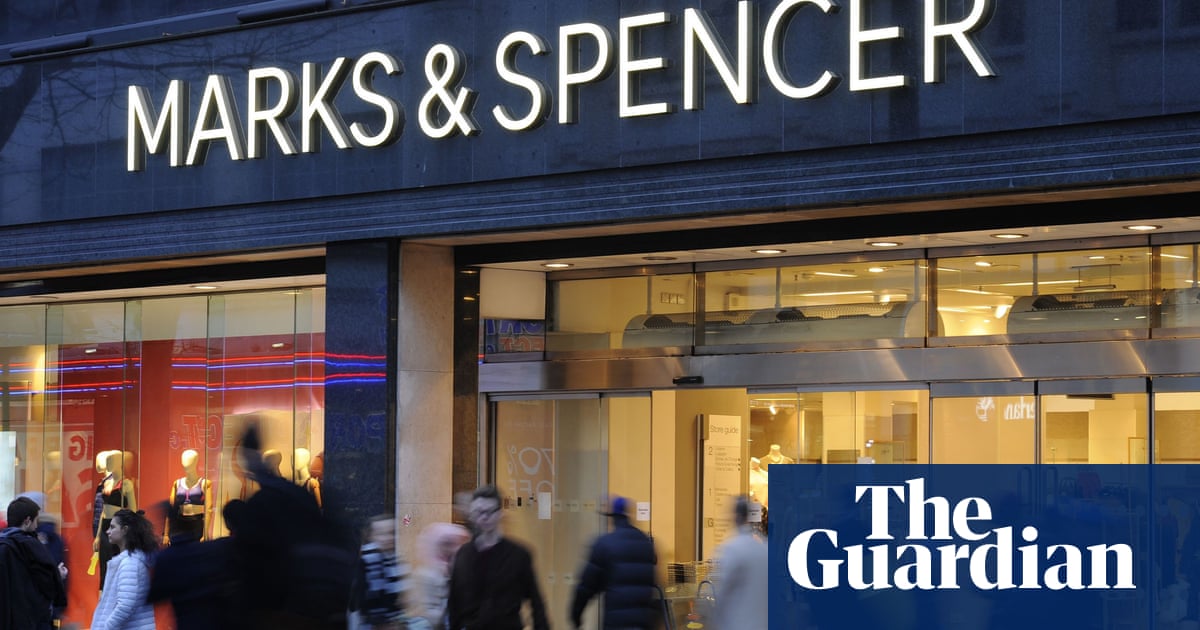
Marks & Spencer is to cut 7,000 jobs over the next three months in a new round of redundancies as the retailer slashes costs and overhauls the way the business is run during the coronavirus pandemic.
The job cuts, the majority of whom are expected to affect women, will be made at its central London head office, in regional management and at its UK stores, adding to a swathe of high street job cuts in the UK as a result of the pandemic.
The clothing food and homewares retailer, which employs 78,000 people and has more than 1,000 stores, also revealed the damage to trade that has been inflicted by the pandemic. Sales of clothing and homewares made through its shops plummeted 48% in the past eight weeks, compared with 2019 levels.
Online sales were up 40% as shoppers switch to the internet, but because M&S is not a top online destination its overall non-food sales were still down 30%.
The shopworkers’ union Usdaw called on the government to intervene to support retailers, saying the latest M&S job cuts were a “bombshell for our high streets”.
The latest cuts come just a month after M&S announced that 950 jobs would go in store management, property and other head office posts.
A string of major retailers and high street dining chains, including Debenhams, John Lewis, Boots, WHSmith , Pizza Express, Zizzi have recently announced job cuts in the wake of the pandemic.
M&S said it hoped a “significant proportion” of the job losses would be made through voluntary redundancies or early retirement. It has started consultations with staff.
M&S said its “streamlining programme” was an important step in reducing costs, allowing it to emerge from the coronavirus crisis with a lower cost base and a more resilient business.
Dave Gill, Usdaw’s national officer, said: “This job loss announcement is yet another devastating blow for M&S staff and yet another bombshell for our high streets. The government has a clear choice; do they want to see the high street go to the wall, or do they want to help save it?
“What the retail sector needs now is a tripartite approach of the government, unions and employers working together to develop a much needed retail recovery plan. We have long called for an industrial strategy for retail to help a sector that was already struggling before the coronavirus emergency. Now the situation is much worse.”
Marks & Spencer’s chief executive, Steve Rowe, said the chain had to “learn from the crisis, accelerate our transformation and deliver a stronger, more agile business in a world in which some customer habits were changed for ever”.
“The outlook is uncertain and we remain cautious,” Rowe said. “These proposals are an important step in becoming a leaner, faster business set up to serve changing customer needs.”
M&S also said it also expected to create a number of new jobs to serve its online operations, many in a new food warehouse, as it prepares for Ocado to begin delivering its food products on 1 September.
The retailer has launched more than 500 new products in stores as part of an expanded online range created for Ocado.
Food sales at M&S rose 2.5% in the 13 weeks to 8 August, and the company said demand had steadily improved since the early days of the lockdown, when it closed stores at travel locations such as train stations.
M&S said its in-store sales had gradually improved since shops were allowed to reopen, with trading close to last year’s levels at some of its newer out-of-town stores, which customers usually travel to by car.
However, sales are still “heavily impacted” at some of its older stores in town centres and some shopping centres.
M&S said the rules banning big parties and weddings and the continued closure of many offices meant customers were buying leisure wear and casual clothing, but not office or formal wear.
Richard Lim, of Retail Economics, said the M&S job cuts were part of a painful readjustment towards online shopping and a slowdown in spending which was likely to lead to more store closures and job losses.
“Retailers remain in survival mode, preserving cash and hanging on for more sustainable levels of demand to return. But the way we shop has changed on a permanent basis for many parts of the sector almost overnight. The reality is that many more retailers will fail and the number of job losses will ramp up as government support is withdrawn. This is the calm before the storm,” he said.












